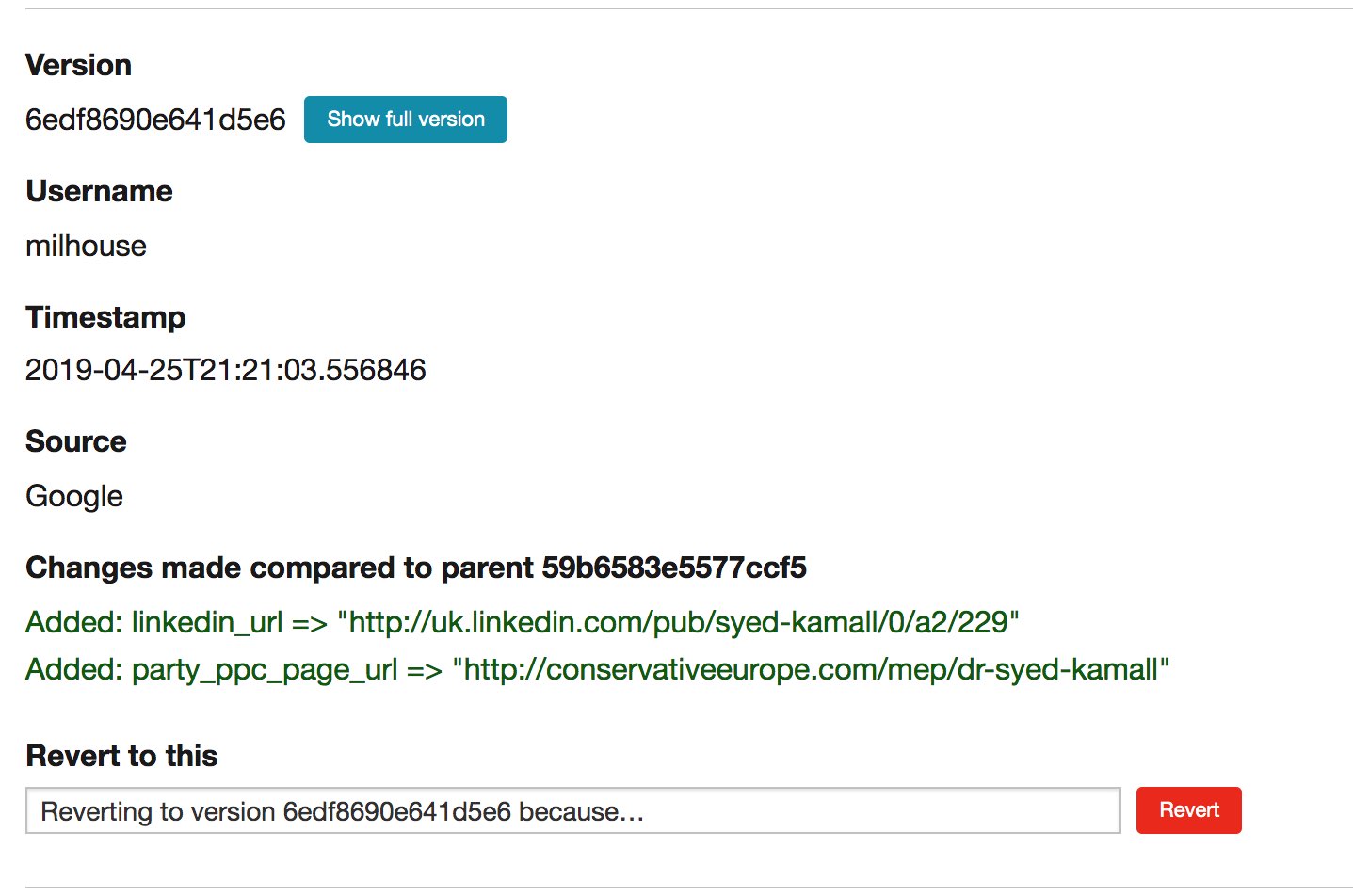All categories
Revert Change
Problem
A change has introduced errors or inaccuracies into the database.
Context
An entry has been accepted into the database, introducing a change that needs to be undone.
Solution
Allow entries to be undone so that people or machines can revert the effects of an entry if necessary.
Entries can occasionally introduce errors into the database, or may have been made by someone with mischievous intent, e.g. to add spam or false information. In these cases, entries need to be reversed or reverted. This is sometimes called ‘roll-back’.
Edits must be reversed in accordance with the project’s Published Policy. Contributors should be informed, before or after the reversion, so that they can learn from the mistake and be given an opportunity to try again.
Usually mistakes will be caught and reversed by project administrators or moderators. But it is possible for a project to allow anyone to revert any entry, even if it was made by someone else. The nature of the project will determine whether a permissions-based system is needed, so that only administrators, moderators or the original editor can revert changes.
If a contributor makes repeated incorrect or malicious edits then Escalating Blocking might be applied.
Related patterns
Changeset
Multiple collaborators independently making entries into a database makes it difficult to understand how the dataset reached its current state.
Track Changes
It is difficult to understand how a record came to be in its current or previous state.
Moderation
There is a need to ensure that contributions are of good quality.


